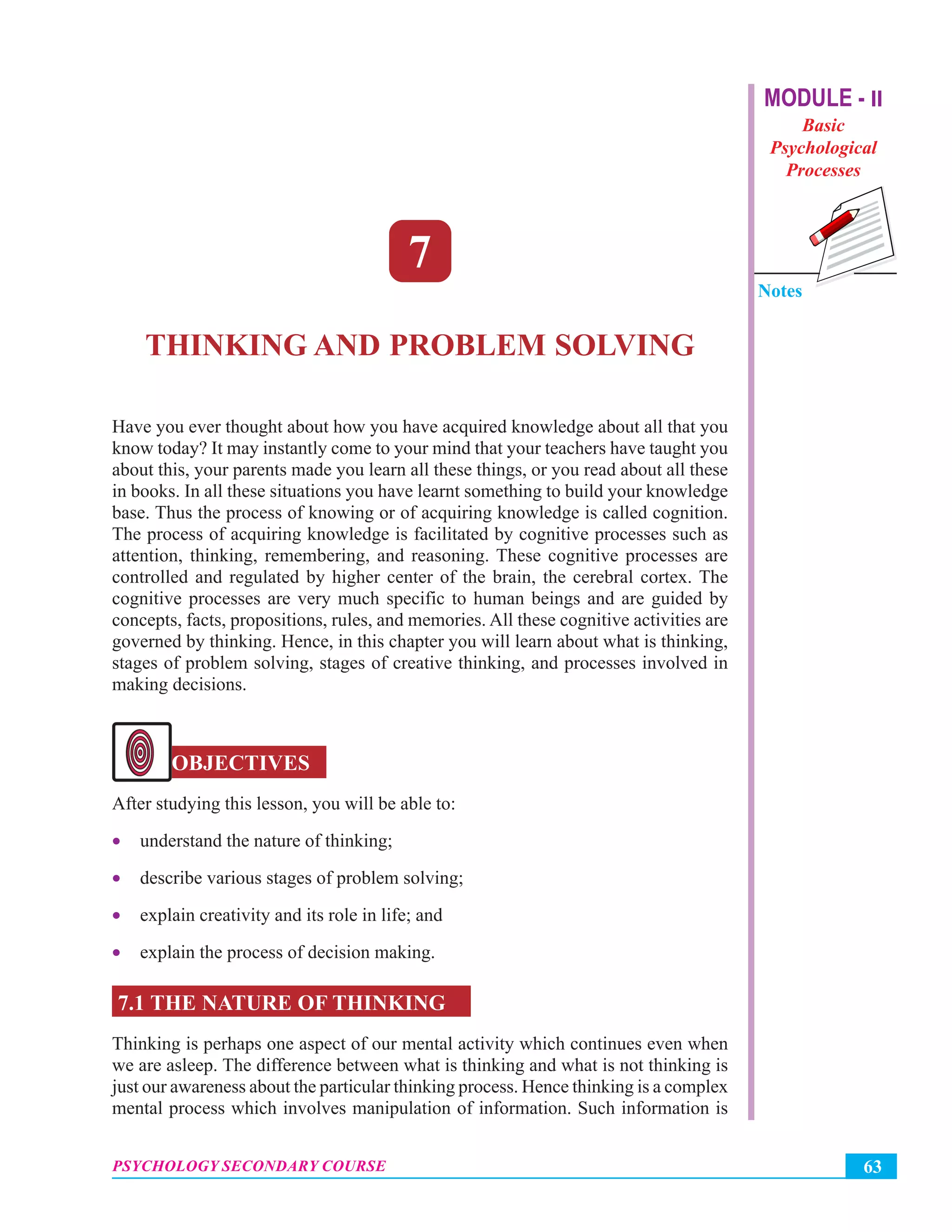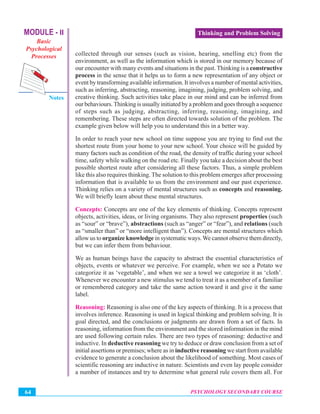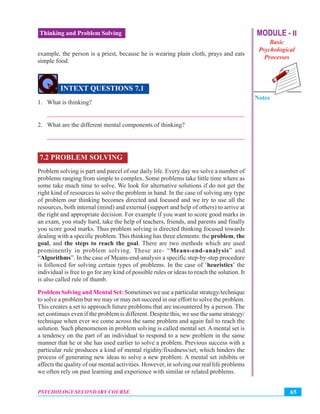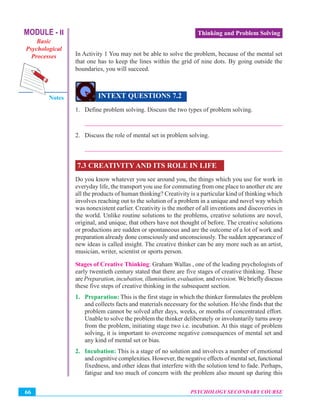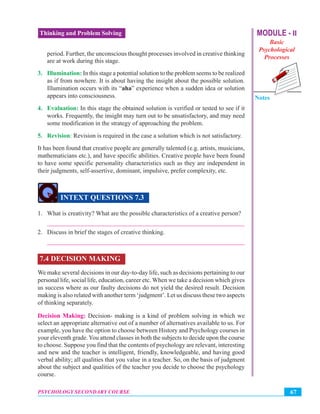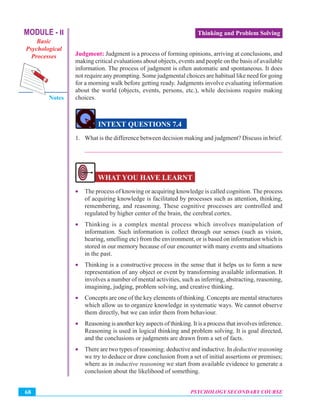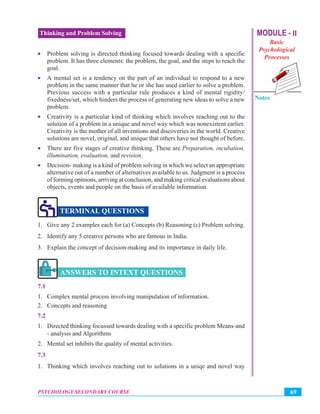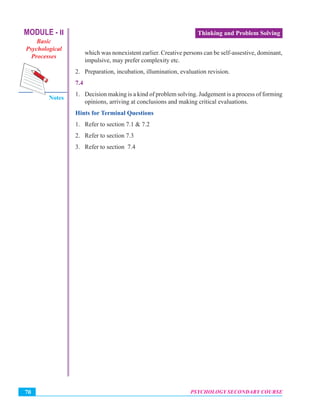Thinking is a complex mental process that involves manipulating information collected through our senses and stored in memory. It helps form new representations through activities like reasoning, problem solving, and creative thinking. Problem solving involves directed thinking to deal with a specific problem, using methods like means-end analysis or heuristics. It can be hindered by mental set, a tendency to approach new problems with old strategies. Creativity is a type of novel and original thinking that leads to new inventions and ideas, and involves stages like preparation, incubation, illumination, evaluation, and revision.
